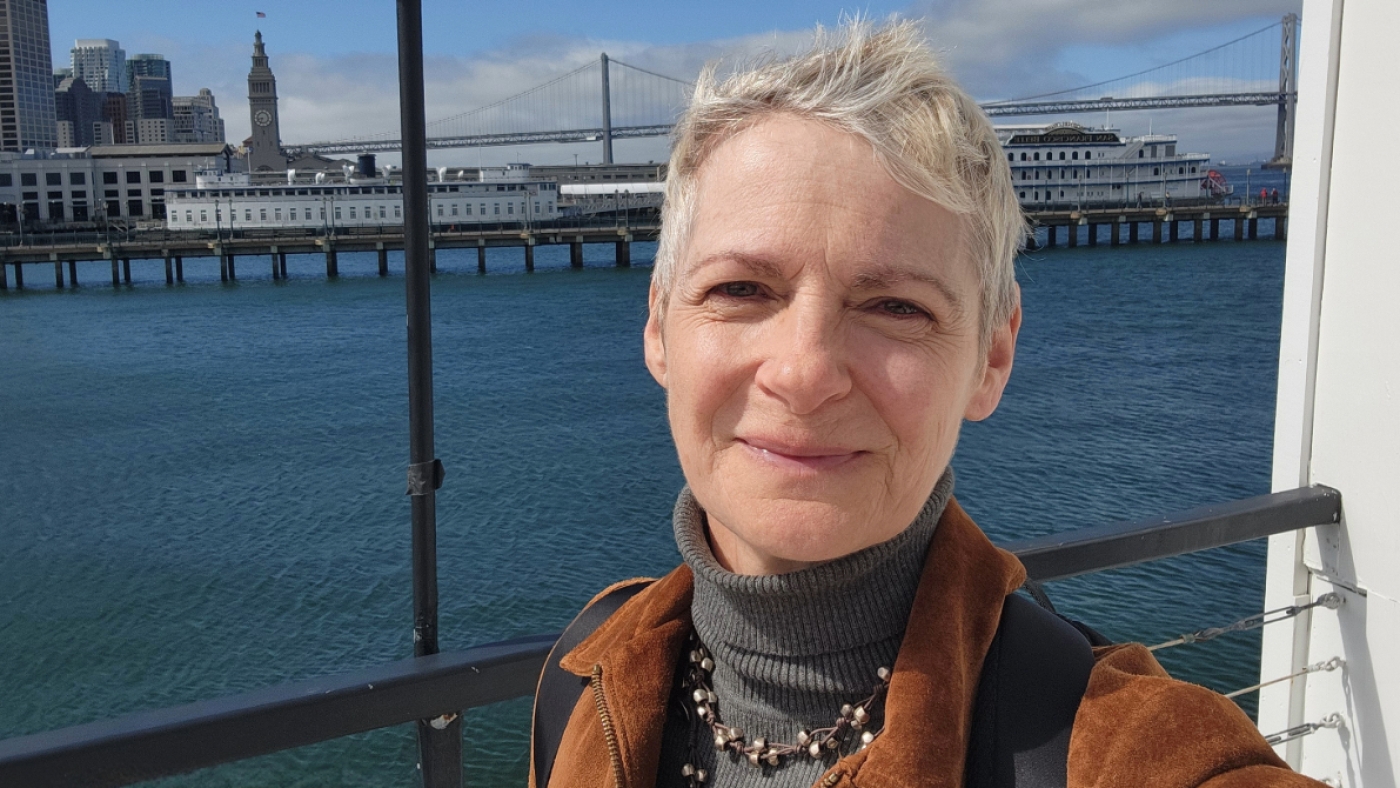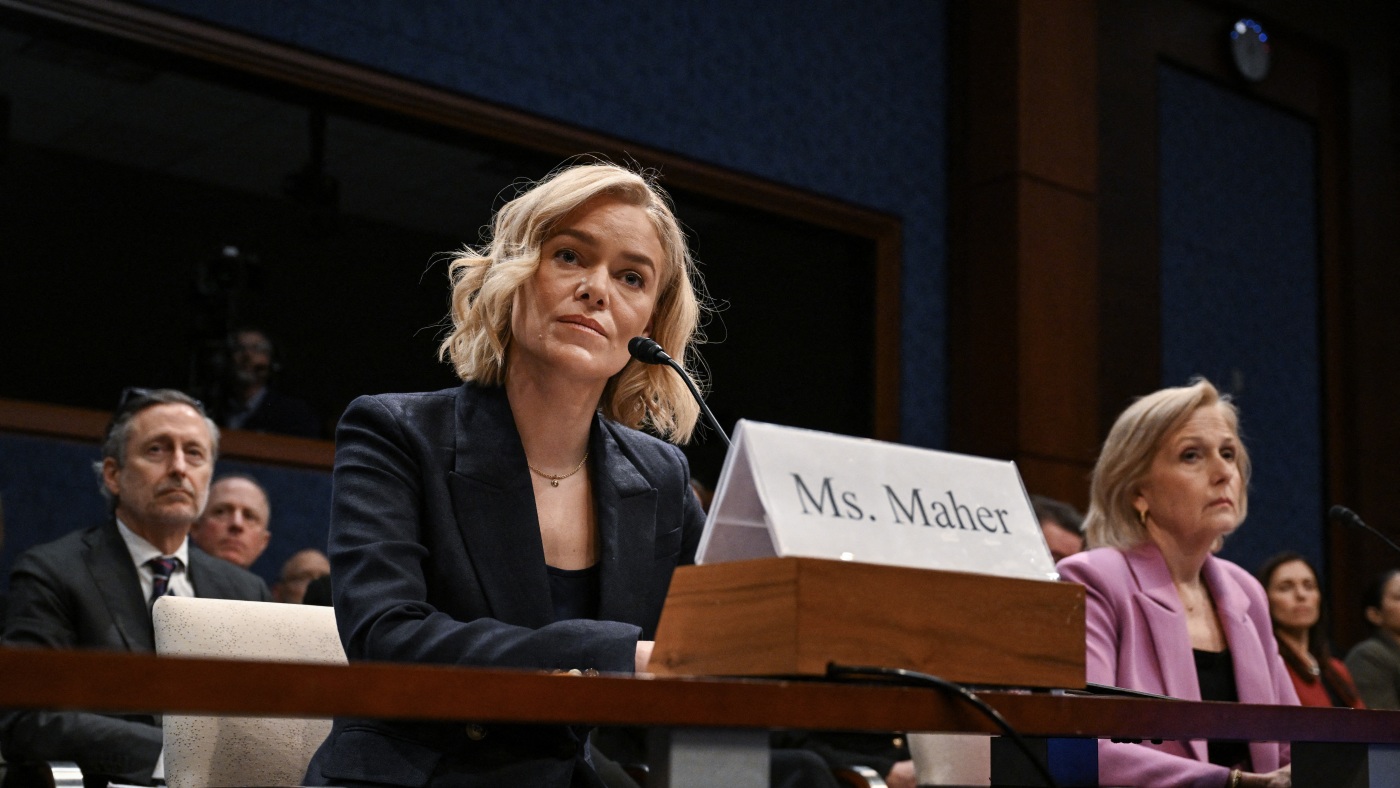
The Supreme Court hears arguments Wednesday in a case that tests whether South Carolina can remove Planned Parenthood clinics from its state Medicaid program, even though Medicaid funds cannot generally be used to fund abortions. Andrew Harnik/Getty Images hide caption
toggle caption
Andrew Harnik/Getty Images
The Supreme Court hears arguments Wednesday in a case that isn't really about abortion, except that it is.
At issue is whether a state — in this case, South Carolina — can remove Planned Parenthood clinics from its state Medicaid program, even though Medicaid funds cannot generally be used to fund abortions.
Planned Parenthood South Atlantic has long operated two clinics in South Carolina that provide essential medical care for low-income patients through Medicaid. Among the services provided are physical exams, cancer screenings and screenings for such conditions as diabetes, anemia, high cholesterol and high blood pressure. The centers also cater to low-income patients by providing flexible hours, same-day appointments and comprehensive contraception care in a single appointment, as well as interpreter services.
Separately, and not covered by Medicaid, the health centers do provide abortion services to the limited extent permitted under state law — that is, during the first six weeks of pregnancy.
In 2018, South Carolina's Republican governor issued executive orders terminating Planned Parenthood's participation in the state's Medicaid program because of its separately funded abortions.
In a state with a significant shortage of primary care providers, that meant many low-income residents who use Planned Parenthood for their health care would be out of luck. And Planned Parenthood, which operates on thin financial margins, would have to close its doors. So the clinics challenged their removal from the state's Medicaid roster, and they won. The lower courts ruled repeatedly that the federal Medicaid law specifically requires that patients have a right to go to "any qualified and willing" medical provider and that Planned Parenthood South Atlantic was and is a qualified provider.
"The Congress made this determination that even when a person is insured through Medicare and Medicaid, the state isn't going to dictate which doctor they can go to," observes Nicole Saharsky, who represents Planned Parenthood. "Like people who are on private insurance, they can go to any qualified and willing provider," she said, adding that "medical decisions are intensely personal, so this has been a requirement of federal law for over 50 years."
Lawyer John Bursch, representing South Carolina, maintains that the federal regulations that interpret the statute do allow states to disqualify a provider for any reason. He said the reason in this case is that "taxpayers don't want their Medicaid dollars going to an organization that is taking unborn lives."
Bursch says it is a misnomer to call the part of the Medicaid law at issue in Wednesday's case "the free choice of provider provision."
"The word 'free' isn't in the statute. … The word 'choice' isn't in the statute. They're just making those words up," he says.
That's all smoke and mirrors, counters lawyer Saharsky.
"South Carolina has conceded throughout this litigation that Planned Parenthood is a medically qualified provider," she says. The state's real objection is that "they just don't like Planned Parenthood."
So as the case comes to the Supreme Court on Wednesday, the question is not whether Planned Parenthood can be excluded from South Carolina's Medicaid system, but more specifically the question is: If Planned Parenthood is a qualified provider under the Medicaid statute, what recourse is there for Planned Parenthood and its patients under the statute requiring the state to pay every qualified provider for Medicaid services?
Bursch, representing the state, will tell the justices that under the Medicaid statute, neither patients nor providers have any right to enforce the Medicaid law. He contends that the only remedy the statute provides is for patients and providers to appeal to the secretary of health and human services, asking him to take away all of the state's Medicaid funding until it complies.
"That has essentially never happened," observes Saharsky, "because it would hurt the very people that the state, and that the United States, are supposed to be helping — folks who are living in poverty."
So, instead, Planned Parenthood and one of its Medicaid patients are suing to enforce patients' rights to get medical care from Planned Parenthood.
South Carolina maintains that the federal Medicaid law simply doesn't permit such individual enforcement rights. Moreover, lawyer Bursch contends that "the Medicaid Act gives states substantial flexibility" and that "when it comes to qualifications, the state can disqualify for any reasons that state law allows."
Lower courts have often referred to Medicaid as a "bargain" for states. For instance, South Carolina gets 70% of its Medicaid funds from the federal government. And in exchange, it "must" live up to the conditions specified in the law, including Medicaid reimbursement for any qualified provider.
That said, in recent years the conservative Supreme Court has rarely granted an individual right to sue as an enforcement mechanism in cases similar to this one.
If the Supreme Court rules that South Carolina can remove Planned Parenthood from its roster of qualified medical providers and that patients have no right to sue, many other states will follow, leaving Medicaid patients with far fewer places to go for medical care.

 3 months ago
38
3 months ago
38

















































